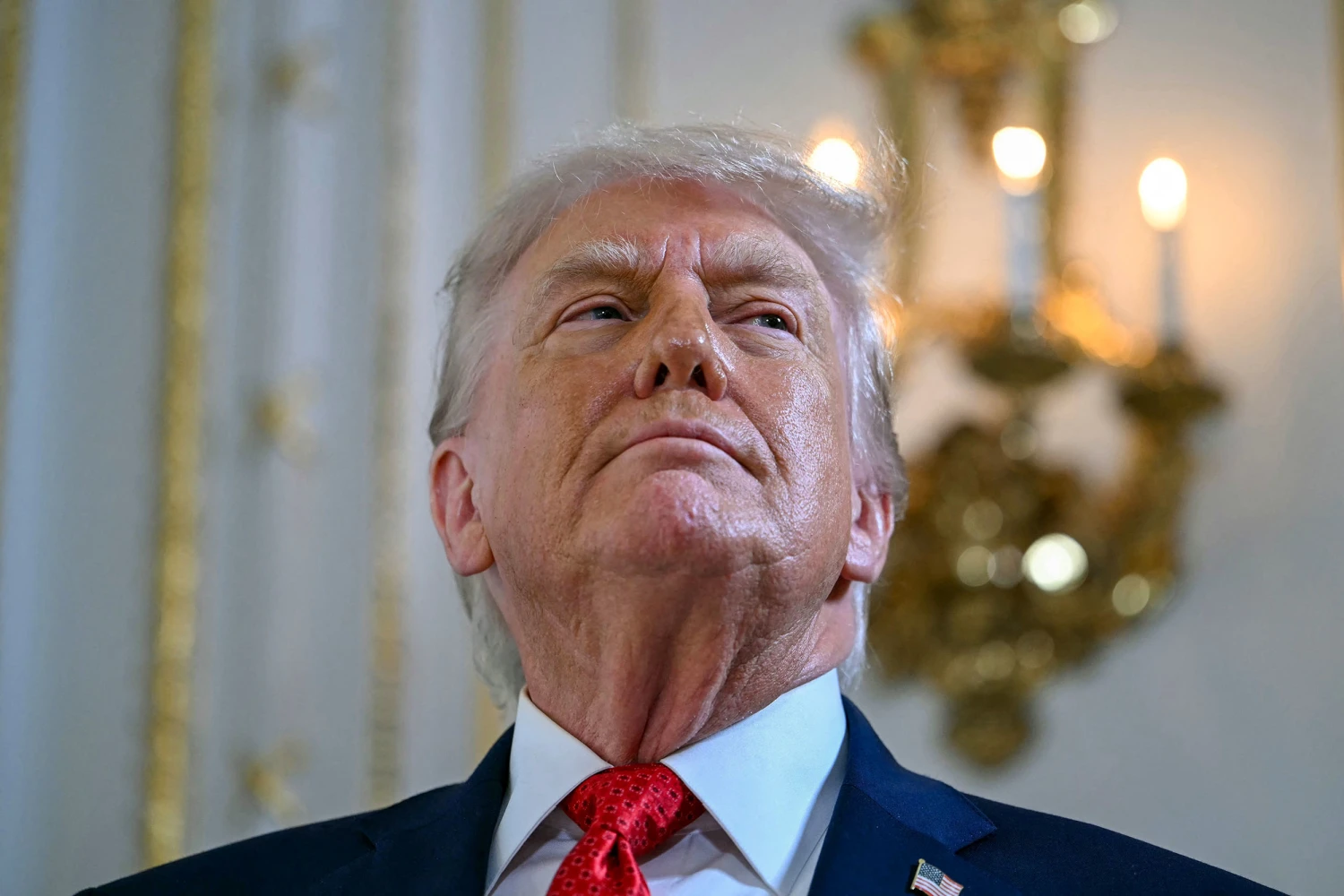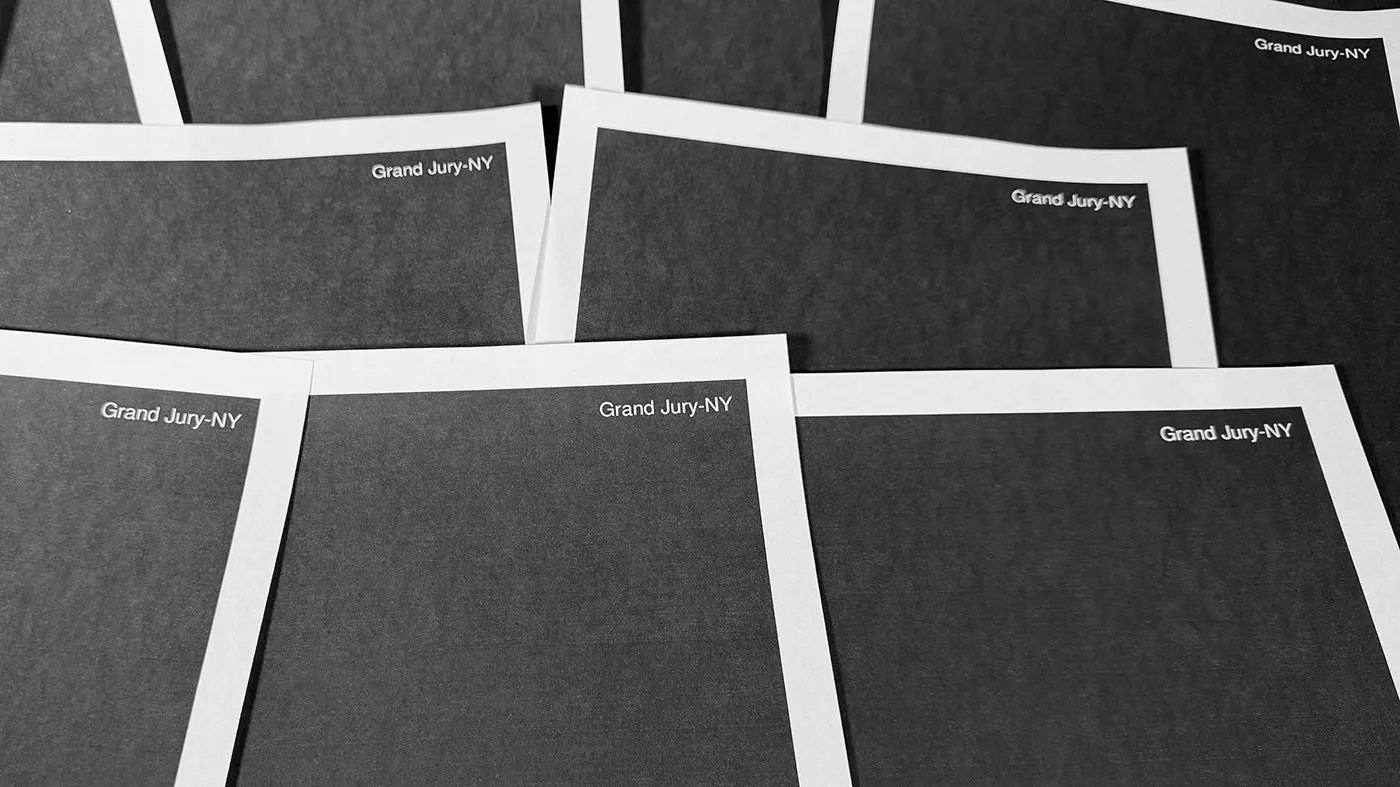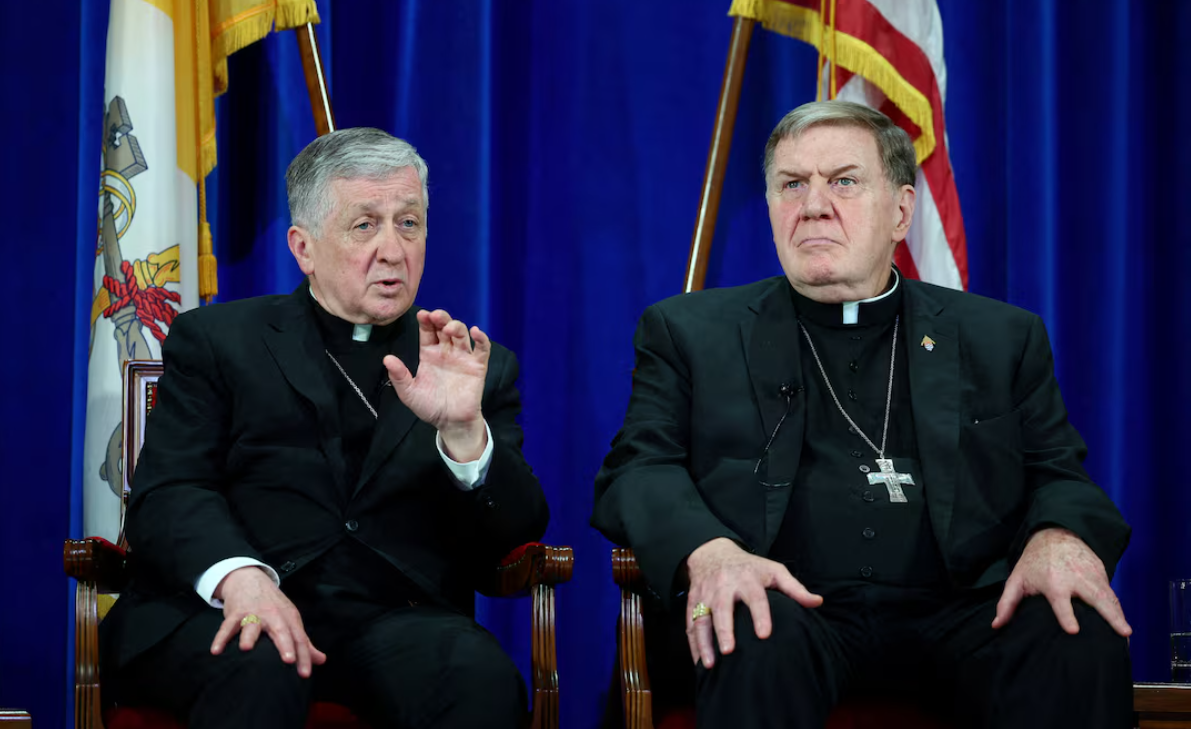GREEN BAY, Wis. — Former President Donald Trump on Tuesday issued a demonstrative call for head-to-head debates with President Joe Biden, placing an empty lectern on the stage before a rally here to represent where Biden could stand.
“This is for Joe Biden. I am trying to get him to debate,” Trump said, referring to the empty podium. “Trying to get Crooked Joe to debate. Anytime, anyplace.”
A staple of down-ballot candidates seeking to force reluctant rivals to debate, the visual aid emphasized Trump’s charge that Biden is afraid to meet him one-on-one. But it also hinted at the very real possibility that a presidential election could come to pass without at least one televised debate for the first time in generations. And, by implication, it excludes the candidate causing consternation for both presumptive major-party nominees: independent Robert F. Kennedy Jr.
“If RFK Jr. gets on a debate stage, Democrats and Republicans better gird their loins,” Democratic strategist Chris Kofinis said. “As long as you have a race with two candidates with high unfavorables, injecting a third candidate creates a lot of dangerous scenarios.”
Until Tuesday, there had been little public discussion of debates since Trump and Biden locked down enough delegates to win their parties’ nominations last month. Trump wrote in a typical all-caps post on Truth Social in March that he would debate Biden “anytime, anywhere, anyplace” — a sentiment repeated on the front of the empty lectern at Tuesday’s rally.
In a statement Tuesday night, Biden campaign spokesperson Michael Tyler called the event setup in Green Bay a “weak merch play from a guy desperate to avoid talking about how he’s got no cash, no campaign infrastructure, and no answer for how his chaotic, divisive and violent campaign is going to win this November.”
“Trump said last fall only people who are losing want debates. At least we agree on something,” Tyler added.
Trump’s campaign has avoided answering questions about why he sounds so eager to get on a stage with Biden after skipping the Republican primary debates this election. In 2022, the Republican National Committee, citing perceived bias during Trump’s 2020 election loss, severed its relationship with the venerable nonpartisan Commission on Presidential Debates.
Biden responded to Trump’s earlier call for a debate by saying it “depends on his behavior.” In February, he said of Trump: “If I were him, I’d want him to debate me, too. He’s got nothing else to do.”
But Biden aides say the campaign won’t make a decision until later this year. In a statement to NBC News last week, Biden campaign spokeswoman Lauren Hitt questioned Trump’s sincerity.
“Donald Trump pulled out of the Presidential Debate Commission, so he’s only talking about debates now because he’s desperate to change the conversation from his financial and legal troubles,” Hitt said, alluding to Trump’s poorer campaign treasury and the four criminal trials he faces. “There’s only one candidate in this election who’s running to serve the American people and strengthen our democracy, and that’s Joe Biden.”
Officials at the Commission on Presidential Debates, which traditionally picks venues and negotiates rules with the campaigns, did not respond to NBC News’ inquiries about this year’s planned forums. Similarly, several members of the organization’s board individually declined interview requests or did not respond to them.
There are plenty of reasons for all the tiptoeing, but one looms larger than the others: Kennedy.
Asked about Kennedy last week, Trump campaign spokeswoman Danielle Alvarez said the focus for the former president is getting on a stage with Biden, whom he debated twice in 2020.
“President Trump is more accessible to the American people than Broken Biden, whose staff doesn’t allow him to take interviews or answer questions because they are terrified of his failed presidency, disastrous policies and declining cognitive abilities,” Alvarez said.
Biden’s campaign declined to say whether it would welcome the inclusion of Kennedy if the president decides to debate Trump.
The namesake son of the former New York senator and U.S. attorney general, who was assassinated on the presidential campaign trail in 1968, has gained traction in national polls and the nervous attention of both Democrats and Republicans.
The Democratic National Committee recently hired veteran operative Lis Smith to help counter third-party candidates. Last week, Trump went after Kennedy himself.
“RFK Jr. is the most Radical Left Candidate in the race, by far,” Trump wrote on Truth Social, attacking Kennedy for supporting progressive policies on the environment. Trump framed Kennedy as a force that would take votes from Biden — “I love that he is running!” But the decision to go on offense appears to betray a degree of anxiety.
A Kennedy spokesperson did not respond to a request for comment.
Kennedy, a vocal voice in the anti-vaccine movement whose agenda is hard to neatly define in conventional political terms, has welcomed his inclusion in the national discourse. On Monday, he echoed Trump in accusing Biden — who has made the preservation of democratic values the centerpiece of his campaign — of imperiling those very ideals.
“I can make the argument that President Biden is the much worse threat to democracy” than Trump, Kennedy said in an interview on CNN. “The reason for that is President Biden is the first candidate in history, the first president in history, that has used the federal agencies to censor political speech … to censor his opponent.”
Kennedy appeared to be referring to a case before the Supreme Court on the level of contact between government officials and social media companies regarding content removal. His campaign has not clarified what case he was referring to.
The debate commission announced late last year that it had selected dates and sites for three presidential debates and one vice presidential debate — at Texas State University, Pennsylvania’s Lafayette College, Virginia State University and the University of Utah.
To qualify under the commission’s rules, Kennedy would have to qualify for ballots in states that collectively have at least 270 electoral votes, and he would have to register at 15 percent or more in five national polls.
Brad Todd, a GOP strategist, said there is “zero chance” that the commission will host debates this year or in the foreseeable future because Republicans don’t trust the members of the commission to represent the interests of candidates.
Regardless of which entity is empowered to sanction debates — or if campaigns just get together to make their own rules — they are important forums for the public, especially this year, he said.
“Presidential debates really matter because you’re dealing with such a small group of people who are undecided” at a time when many of them find fault in both major-party candidates, he said. “That’s who decides the election this year.”
Neither of the major-party candidates have agreed to anything, and aides to both Biden and Trump say they believe the other candidate will ultimately duck a face-to-face meeting.
But if swing voters see one candidate or the other trying to end a tradition of televised debates that dates to the 1960 race between Richard Nixon and John F. Kennedy — RFK Jr.’s uncle — there could be a steep political cost, Kofinis said.
“That would be a catastrophic mistake for whoever proposes it first or whoever walks away from it,” Kofinis said of a possible debate-less election. “There is a general expectation that if you’re running for president, you’re going to debate so that the American public can evaluate candidates side by side or three candidates side by side by side.”




